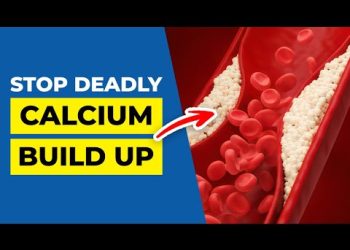Understanding Fat Consumption
Today, we’re diving into the top 10 signs that indicate you’re consuming too much fat. It’s crucial to understand these indicators because, contrary to popular belief, many individuals actually lack adequate fat in their diet. However, overconsumption is also possible and that’s what we’re exploring here. Interestingly, the first four signs we’ll discuss are actually myths, yet they’re the ones most commonly believed.
Myth: Fat and Weight Gain
The belief that too much fat consumption directly leads to weight gain is a misconception. In reality, weight gain is often tied to insulin resistance, not the fat itself. Fat is calorie-dense, which is why the body stores energy as fat. However, fat doesn’t trigger insulin—the hormone responsible for storing fat. Instead, carbohydrates do. Thus, combining high carbs with high fat leads to excess calorie storage and potential weight gain.
Myth: Fat Causes Fatigue
Another common myth is that consuming a lot of fat makes you tired. In truth, it’s the overall large amount of food that causes this sensation, often referred to as the “Thanksgiving syndrome.” It’s the mix of carbohydrates and fat that leads to a spike in blood sugar and insulin, increasing insulin resistance and leading to feelings of fatigue.
Myth: Heart Damage from Fat
Many believe that the heart is adversely affected by high fat intake, but again, this is misleading. It’s prolonged consumption of carbohydrates and the resulting insulin resistance that pose problems. While a diet high in carbs and fat can be problematic, the focus should be on the type of fat consumed. Healthy fats, such as those found in olive oil and natural animal fats, are less likely to contribute to heart issues compared to processed fats.”
Myth: Fat and High Cholesterol
It’s often assumed that eating fat increases cholesterol, but studies suggest otherwise. The quality of fats consumed matters more than the quantity. Natural and stable fats like those from whole foods are not harmful when consumed appropriately, unlike processed vegetable oils. Lowering carbs and increasing healthy fats can improve cholesterol levels by reducing insulin resistance.
Recognizing Real signs of Excess Fat Intake
The real signs of eating too much fat begin with digestive issues, primarily affecting the gallbladder. If overwhelmed, the gallbladder can’t release enough bile to digest fats properly, leading to symptoms like diarrhea. It’s less about the fat causing the issue and more about the condition of the gallbladder.
Gallbladder Stress: Floating Stools
Floating stools can also signify excess fat intake due to inadequate fat digestion. If the gallbladder doesn’t release enough bile or the pancreas lacks digestive enzymes, fats aren’t absorbed, causing the stool to float. This indicates an imbalance in your digestive system’s capability to process fats.
Digestive Discomfort
Excessive burping, bloating, or indigestion after meals might also indicate high fat intake, especially if these symptoms arise due to poor bile release from the gallbladder. Without proper emulsification, fats cause discomfort, indicating that the digestive system is under stress from excessive fat.
Shoulder Pain: A Surprising Indicator
Experiencing pain on the right side, particularly in the shoulder area, could be a result of gallbladder issues. Known as referred pain, it emerges from the gallbladder but materializes in the shoulder, signaling overconsumption of fats or gallbladder strife.
Painful Symptoms and Interventions
If you feel pain directly in the gallbladder area, it might be congested or preluding an attack. Severe cases involve gallstones, and sometimes the recommendation is gallbladder removal. However, addressing diet and possibly incorporating gallbladder-friendly supplements can offer relief and recovery without surgical intervention.
Impacts on Weight Loss Efforts
Conspicuously, consuming excessive fat can also halt weight loss. While ketogenic diets promote fat consumption, they emphasize reducing carbohydrates to utilize body fat for energy. To continue losing weight on such diets, one should gradually reduce dietary fat to encourage body fat usage.
Transitioning to a sustainable diet requires balance and attention to signs your body presents. For more insights on effective dietary habits, make sure to explore various health resources and insights.











